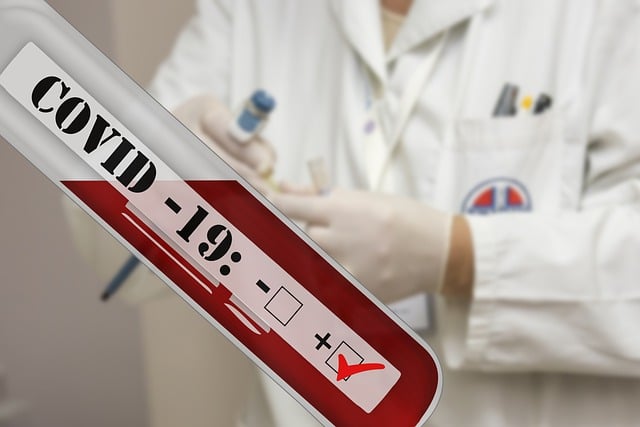In the UK, a simple diabetes blood test often includes testosterone measurement, providing a vital tool for men's health screening. This test identifies conditions like type 2 diabetes and hypogonadism early, allowing for prompt medical interventions that improve health outcomes and quality of life. Testosterone is crucial for muscle mass, bone density, energy, and sexual function, and its decline with age can lead to various health issues. UK healthcare professionals use these blood tests to monitor hormonal balance in diabetic men, creating personalized treatment plans to manage both diabetes and testosterone-related conditions effectively.
In the UK, testosterone level testing plays a crucial role in diagnosing male health issues. This article explores the significance of understanding testosterone testing, highlighting why and when men should consider getting tested. We delve into the intricate relationship between testosterone and overall male health, focusing on common conditions. Furthermore, we discuss how diabetes and testosterone levels are interconnected, emphasizing the value of UK diabetes blood tests in aiding diagnosis and treatment strategies.
- Understanding Testosterone Testing: Why and When to Get Tested in the UK
- The Role of Testosterone in Male Health: Common Issues and Conditions
- Diabetes and Testosterone Levels: How Blood Tests Can Aid Diagnosis and Treatment
Understanding Testosterone Testing: Why and When to Get Tested in the UK
In the UK, testosterone testing is a crucial tool for diagnosing various health issues specifically affecting men. This blood test measures the level of testosterone, a hormone primarily responsible for the development and maintenance of male sexual characteristics. Understanding when and why to get tested is essential for early detection and effective management of potential problems.
Men may consider undergoing a UK Diabetes Blood Test, which often includes testosterone level checking, if they experience symptoms such as decreased libido, erectile dysfunction, muscle mass loss, or fatigue. These signs could indicate conditions like type 2 diabetes, hypogonadism (low testosterone levels), or other metabolic disorders. Timely testing can lead to prompt medical interventions, improving overall health outcomes and quality of life.
The Role of Testosterone in Male Health: Common Issues and Conditions
Testosterone plays a pivotal role in male health and well-being, influencing various physiological processes. It is essential for muscle mass development, bone density maintenance, energy levels, and sexual function. However, as men age, testosterone production naturally declines, leading to a range of potential health issues. In the UK, diabetes blood tests often include measurements of testosterone levels to diagnose or monitor conditions associated with this hormone.
Common male health issues linked to low testosterone levels include decreased muscle mass and strength, reduced bone density, fatigue, diminished sexual desire (libido), and erectile dysfunction. It can also contribute to changes in mood, increased irritability, and a general sense of well-being. Prompt diagnosis through UK diabetes blood tests, which often measure total testosterone, free testosterone, or both, is crucial for effective management and treatment of these conditions, ensuring men receive appropriate care tailored to their individual needs.
Diabetes and Testosterone Levels: How Blood Tests Can Aid Diagnosis and Treatment
In the UK, diabetes is a significant health concern, and managing it effectively involves understanding its impact on various bodily systems, including hormonal balance. Testosterone level testing plays a crucial role in diagnosing and treating diabetes-related hormone imbalances in men. Blood tests are essential tools for healthcare professionals to assess testosterone levels alongside monitoring blood sugar control.
High blood sugar levels associated with diabetes can influence testosterone production and regulation within the body. By conducting comprehensive UK diabetes blood tests, medical experts can identify individuals with low testosterone (hypogonadism) or those where diabetes management impacts hormonal levels. This knowledge enables tailored treatment plans, often involving lifestyle adjustments, medication, or both, to normalise testosterone levels and improve overall health outcomes for diabetic men.
Testosterone level testing plays a crucial role in diagnosing male health issues, from common conditions like low testosterone (hypogonadism) to more complex disorders. In the UK, understanding when and why to get tested is essential for maintaining optimal health. For individuals with diabetes, regular UK diabetes blood tests can provide valuable insights into hormone levels, aiding in comprehensive healthcare management. By combining these approaches, healthcare professionals can effectively navigate male health challenges, ensuring better outcomes for those facing testosterone-related conditions.
